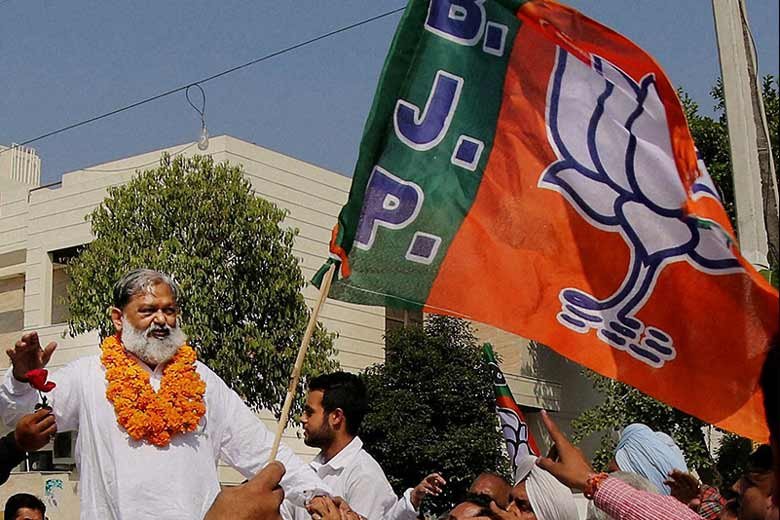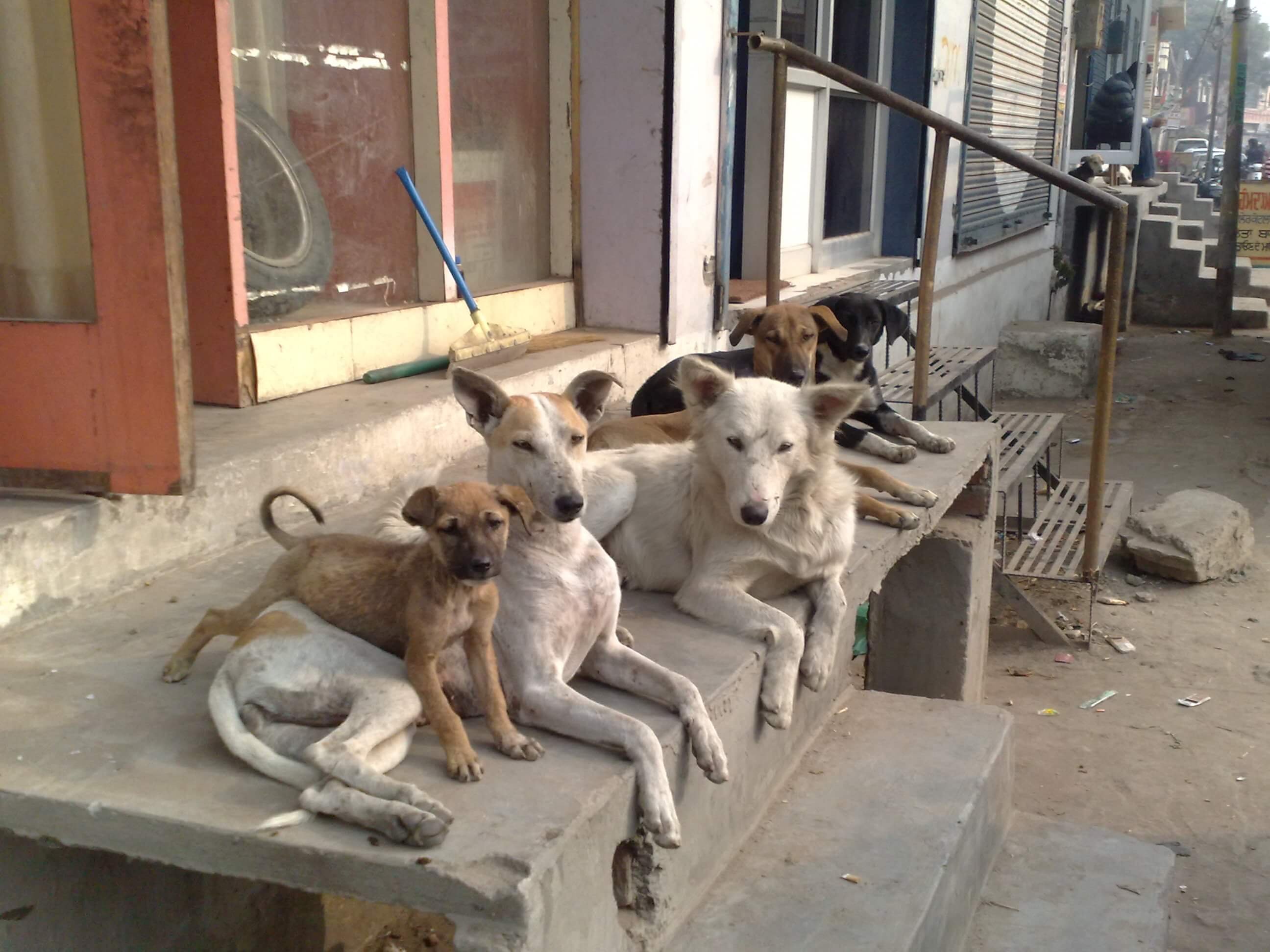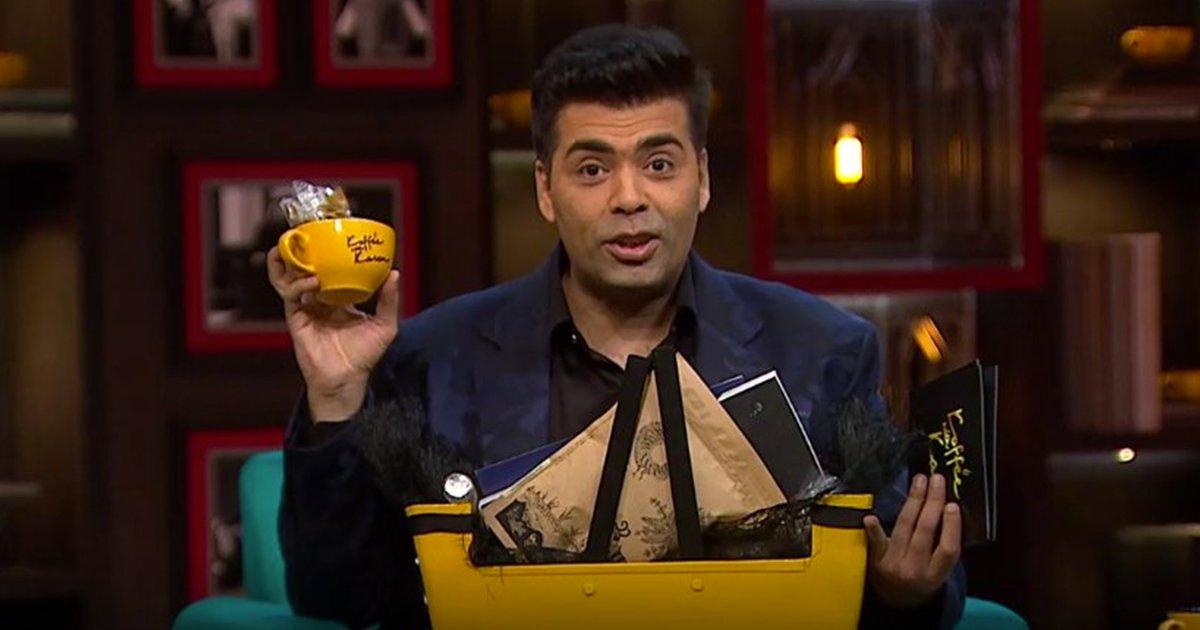It’s bhow bhow time again for the Bharatiya Janata Party. Haryana Sports Minister Anil Vij, in response to some reports that his delegation to the Olympics missed some India matches because they forgot to buy tickets for the event, took his anger out on the media and wrote on his Twitter feed: “Some stinking dogs are writing again and again that we forgot to buy tickets for Rio which is incorrect”.

Meanwhile, former BJP leader Dayashankar Singh, expelled from the party for derogatory remarks on Mayawati, again targeted her saying she was “like a dog that chases speeding motorcycle in lanes but steps back when the vehicle stops”.
This is at least the fifth dogism – and counting – to emerge out of the BJP, er, kennels. Earlier BJP leader Kailash Vijayvargia, reacting to party colleague Shatrughan Sinha’s critique of the Bihar debacle said, “when a car is moving, the dog chases it, believing the car is running because of him”.

More controversial were VK Singh’s comments after the ghastly burning of two Dalits in Faridabad when he said, in response to charges of state apathy to Dalits, that the Centre should not be blamed: “if somebody throws a stone at the dog, the government is responsible – it’s not like that”.
To be sure, the barking orders have come from the top. Narendra Modi’s reply in 2013 to a question on the deaths in his state Gujarat, during the riots was: “Even If I am in the back seat of a car and a puppy (kutte ka bachcha) comes under the wheels, isn’t it painful? It is. Whether I am a chief minister or not, I am a human being – I will be sad if something bad happens anywhere”. The analogy had kicked up a storm, with political rivals accusing him of comparing Muslims to puppies, while BJP maintained this was a misinterpretation.
Vij’s “stinking dogs” is definitely pejorative. Vijayvargia and Dayashankar’s animal analogies are combative and derogatory to both species referred to. VK Singh’s and the PM’s comments, are inexplicably undiplomatic, insensitive and can be seen as sympathetic to harming of animals.
Because interpretation is open, it can be used politically with mischievous intent, by both sides. US Republican politician Mitt Romney had his moment when in the midst of a predominantly black gathering he decided (some say inexplicably) to say-sing, “who let the dogs out?” and bark after the line. His musical moment went on to haunt him, with Democrats bringing it up for airing now and then.
Given the current consistency and frequency of dog-bytes, it has to be asked: what’s with BJP and dogs? Is it heartland politics? BJP ministers are seen as less sophisticated in comparison to Congress ministers, erudite and from elite schooling. Not that that stops someone like Mani Shankar Aiyar, from his snooty Doon school background, from unfairly sneering and making a “chaiwala” comment.

Animal idioms and proverbs of course are not exclusive to a language – they are common to English and Hindi, the languages we are most familiar with. Expressions can convey negative qualities or positive ones or relay wisdom or just be funny – they can have religious references such as “Bat in the Belfry”, or cultural ones (my favourite one from Haryana, on power, being “Jiski Lathi Uski Bhains”). Some can be traced to Hindu religious mythology: “poori Ramayan padke pooche Sita kaun thi” or are Biblical: “lamb to the slaughter” or Islamic – “Sau choohe kha ke billi Haj pe chali” – in context.
Animal insults too are not culture-specific. “Dog!” is hurled as much as an insult in English as in the Hindi “kutte!”. However, English also has terms such as “underdog” which is positive, which is similar to “dark horse”. Some of this is lost in translation. Many Indians, for example, were offended by the “dog” in Slumdog Millionaire, where the story traced the heroic rise of one such “underdog”. But Indians complained that “slum people” were compared to “dogs”.

That way, to use a dog metaphor, Indians are champs at chasing their tail. As for dark horse, someone, perhaps Indian, may decide to argue that the term is insulting to dark skin-toned people.
Interestingly, while there are many Hindi sayings which are not all flattering to animals – “bandar kya jaane adrak ka swad” (what would a money know of the taste of ginger) and “gadhe ke sar pe seengh nahin hote” (a donkey doesn’t have horns on his head), none in common usage have anything to do with that most precious of animals, the cow.
And while animal insults in English are rich with cow references – “fat cow!” or even “cow!”, they are very far in meaning to “gau ma” as we have become accustomed to hearing.
To add to the language confusion as well as cultural nuances, another factor leading to growing differences of opinion over animal idioms, proverbs and analogies is speciesist vs non speciesist ideology. Are humans a more superior species to animals, and do animals have emotions?
Depending on whose side you are on, animal terms or analogies are used to dehumanise people (strip them of humanness and degrade them to animals) or upgrade animals to a status equal, if different, to humans).
Ellen DeGeneres found herself in the midst of a similar controversy recently when in the euphoria over the Olympics, she tweeted a photo of her riding on Usain Bolt’s back. It made Bolt seem like a beast of burden. DeGeneres was slammed for racism, given the history of black oppression in America by white people.
Those partial to animal rights or even basic sensitivity believe the current vocabulary is meant to treat animals as food or trivialise violence towards animals or just use animal terms for negative connotations. All of the above are true, as is the fact that the current political vocabulary and references to animals, especially dogs, while speaking of humans only shows our politicians’ deep-seated lack of compassion for animals and humans alike.
(Disclaimer: The writer would like to let the cat out of the bag and declare she is partial towards animal rights and animal friendly language.)
Feature Image Source: WikiCommons/PTI






































